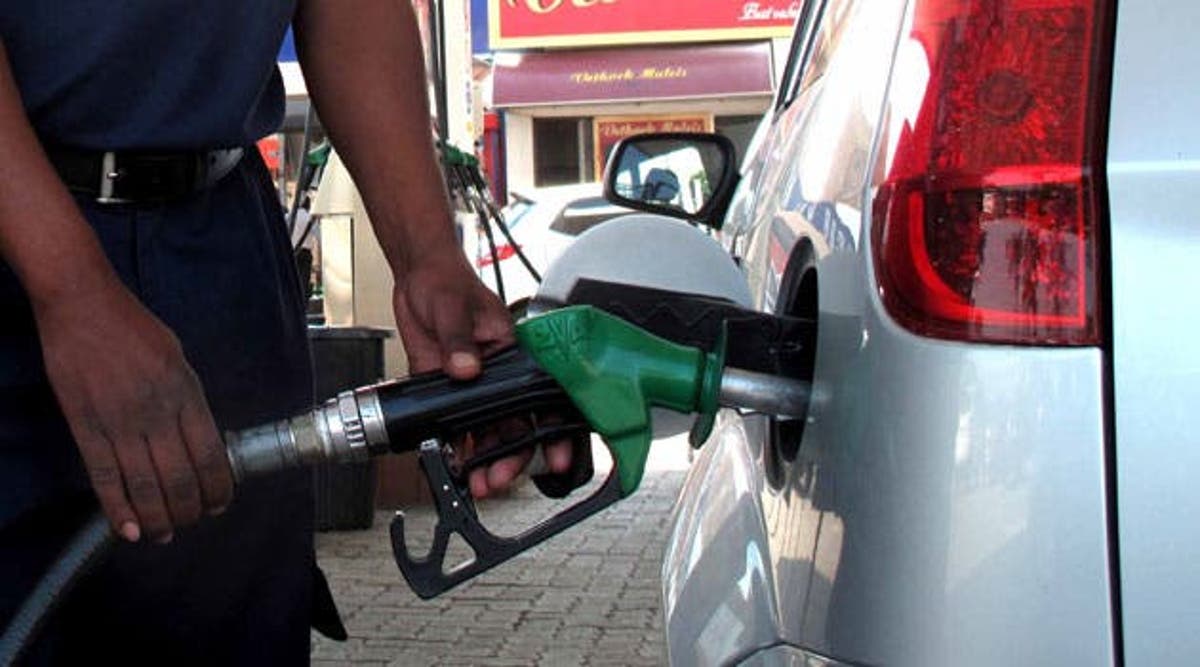Business
Why fuel price may fall soon across filling stations- Oil dealers

Why fuel price may fall soon across filling stations- Oil dealers
The pump price of Premium Motor Spirit, popularly called petrol, may be reduced in filling stations operated by independent marketers this week, following the massive imports of PMS by the Nigerian National Petroleum Company Limited, oil dealers stated on Saturday.
It was gathered that the recent hike in petrol prices at retail outlets operated by independent marketers was due to the short supply of the commodity, which led to acts of profiteering by both depot owners and filling stations.
But operators in the downstream oil sector confirmed to our correspondent on Saturday night that several cargoes imported by NNPCL had arrived in Nigeria, as some of them were currently discharging at the ports.
“Once the products start hitting filling stations, fuel price will reduce, because the recent high cost was due to supply drop,” the National Public Relations Officer, Independent Petroleum Marketers Association of Nigeria, Chief Ukadike Chinedu, told our correspondent.
On Thursday, oil marketers blamed the emergence of queues for petrol at filling stations in Abuja and neighbouring Nasarawa and Niger states on the low supply of PMS by its sole importer – NNPCL.
However, the national oil company refuted the position of marketers, as it argued that the queues in the affected areas were due to a “price war.”
But going by the latest development concerning the imports by NNPCL, operators in the sector stated that the queues would not only disappear but there would be a reduction in price at independent filling stations.
READ ALSO:
-
Emulate Weah, congratulate Tinubu, Labour party faction urges Obi, Atiku
-
Boko Haram ambushes Buni’s escorts, gun down policeman
-
Over 80 dead in Israel strikes on refugee camp – Hamas
Currently, petrol is mostly sold at between N580 and N613/litre at filling stations operated by NNPCL. Most other marketers dispense the commodity at higher rates, with some selling PMS for as high as N670/litre.
“The most important thing now is that cargoes carrying PMS ordered by NNPCL have arrived, some of them have berthed and they are discharging. So the partial scarcity we are experiencing now will be gone,” Ukadike said.
He noted that the inflow of foreign exchange during the Yuletide would not necessarily impact petrol prices, rather the increased imports by NNPCL should warrant a reduction in price.
He said the large PMS imports were confirmed to marketers by NNPCL.
On whether marketers had started receiving the products, Ukadike replied, “By Monday we will start receiving from Port Harcourt and Warri, based on my last discussion with the NNPC management.”
Another major marketer also confirmed the position of IPMAN, as he stated that “when you wet the market with products, there’ll be no room for profiteering.”
Earlier, the Chief Corporate Communications Officer, NNPCL, Olufemi Soneye, stated that the position of oil marketers as regards the re-emergence of fuel queues was not true, as he insisted that the oil firm had enough products.
“That is not true. The recent tightness in Abuja is essentially a price war which is typical of any competitive market. Motorists would rather queue at filling stations that offer lower prices than others.
“While NNPC retail is selling at N613/litre in Abuja, other marketers’ prices range from N625-N650/litre,” Soneye said.
Why fuel price may fall soon across filling stations- Oil dealers
(PUNCH)
Business
PH refinery: 200 trucks will load petroleum products daily, says Presidency

PH refinery: 200 trucks will load petroleum products daily, says Presidency
No fewer than 200 trucks are set to load petroleum products at the government-owned Port Harcourt Refinery, the presidency has said.
A presidential spokesperson, Sunday Dare, made this known in a statement through his official X handle on Tuesday.
Newstrends had reported that the Nigerian National Petroleum Company on Tuesday announced that Port Harcourt Refinery has resumed operations and crude oil processing after years of inactivity.
READ ALSO:
- US-based Nigerians get 30-year sentence over $3.5m romance scam
- 4 Nigerians arrested in Libya for alleged drug trafficking, infection charges
- BREAKING: Port Harcourt refinery begins operation
Reacting, Dare said, “200 trucks are expected to load products daily from the refinery, Renewing the Hopes of Nigeria.”
He added that “the Port Harcourt refinery has two wings.
“The Old Refinery comes on stream today with an installed production capacity of 60, 000 barrels per day of crude oil.”
PH refinery: 200 trucks will load petroleum products daily, says Presidency
Business
Breaking: CBN increases interest rate to 27.50%

Breaking: CBN increases interest rate to 27.50%
The Central Bank of Nigeria (CBN) has raised the lending interest to 27.50 per cent from 27.25 per cent.
This latest increase in the Monetary Policy Rate came after a meeting of the Monetary Policy Committee (MPC) of the Central Bank of Nigeria (CBN) on Monday and concluded Tuesday.
The Monetary Policy Rate measures the benchmark interest rate.
The CBN Governor, Yemi Cardoso, announced this in Abuja on Tuesday after the MPC meeting, last for the year, held at the apex bank’s headquarters.
He said the MPC voted unanimously to raise the MPR by 25 basis points from 27.25% to 27.50%; and retain the Cash Reserve Ratio (CRR) at 50% for Deposit Money Banks and 16% for Merchant Banks.
The CBN governor also said the MPC retained the Liquidity Ratio (LR) at 30% and Asymmetric Corridor at +500/-100 basis points around the MPR.
Business
Nigeria’s unemployment rate dropped to 4.3% in Q2 – NBS

Nigeria’s unemployment rate dropped to 4.3% in Q2 – NBS
Nigeria’s unemployment rate stood at 4.3 per cent in the second quarter of 2024, the National Bureau of Statistics (NBS) has said in its latest report.
The report released on Monday said the unemployment rate decreased compared to the 5.3 per cent recorded in the Q1 of 2024.
The NBS defined the unemployment rate as the share of the labour force (the combination of unemployed and employed people) who are not employed but actively searching and are available for work.
“The unemployment rate for Q2 2024 was 4.3%, showing an increase of 0.1 percentage point compared to the same period last year,” the report stated.
“The unemployment rate among males was 3.4% and 5.1% among females.
“By place of residence, the unemployment rate was 5.2% in urban areas and 2.8% in rural areas. Youth unemployment rate was 6.5% in Q2 2024, showing a decrease from 8.4% in Q1 2024.”
Report also said the unemployment rate among persons with post-secondary education was 4.8 per cent; 8.5 per cent among those with upper secondary education, 5.8 per cent for those with lower secondary education, and 2.8 per cent among those with primary education in Q2 2024.
Employment rate – 76%
The report showed that the employment-to-population ratio, which measures the number of employed workers against the total working-age population, increased to 76.1 per cent in Q2 2024.
“In Q2 2024, 76.1% of Nigeria’s working-age population was employed, up from 73.1% in Q1 2024,” the report stated.
Self-employment – 85.6%
The report further showed that Nigeria’s labour market saw a notable shift as the proportion of self-employed individuals increased in Q2 2024.
It stated, “The proportion of persons in self-employment in Q2 2024 was 85.6%.”
-

 metro21 hours ago
metro21 hours agoBREAKING: Port Harcourt refinery begins operation
-

 Business3 days ago
Business3 days agoJust in: Dangote refinery reduces petrol price for marketers
-

 metro2 days ago
metro2 days ago40-foot container falls on car in Lagos
-

 Politics3 days ago
Politics3 days ago2027: Lagos Speaker, Obasa joins gov race, may battle Seyi Tinubu, others
-

 Politics2 days ago
Politics2 days agoLagos 2027: Seyi Tinubu campaign team releases his life documentary
-

 International2 days ago
International2 days agoTrump to sack 15,000 transgender officers from U.S. military: Report
-

 Entertainment2 days ago
Entertainment2 days agoPolygamy best form of marriage for Africa – Okey Bakassi
-

 Education14 hours ago
Education14 hours agoUS University opens 2025 scholarships for international students












